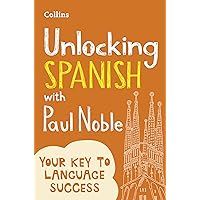Exploring the Sweet Soul of Spain
Spain, a country renowned for its vibrant culture, stunning landscapes, and rich history, also boasts a delicious tradition of pastries that are as diverse as its regions. From the bustling streets of Madrid to the sun-soaked plazas of Seville, Spanish bakeries offer a mouthwatering array of sweet treats that have been perfected over centuries. This article invites you to embark on a culinary journey through Spain’s most iconic pastries, exploring the stories and flavors that make them unique. Whether you’re savoring the flaky layers of a croissant in a Barcelona café or enjoying a hearty slice of Santiago cake in Galicia, each pastry tells a tale of the land and its people. Join us as we delve into the sweet soul of Spain.
Churros and Chocolate: A Match Made in Heaven
No discussion of Spanish pastries would be complete without mentioning churros, the quintessential Spanish breakfast treat. These golden, crispy sticks of fried dough are often served with a cup of thick, velvety hot chocolate for dipping, creating a heavenly combination that has been a staple of Spanish mornings for generations. Originating in Madrid, churros are now enjoyed across the country, with each region putting its own twist on the classic recipe. In Andalusia, churros are often larger and fluffier, while in Catalonia, they are sometimes filled with custard or chocolate. The secret to a perfect churro lies in the dough, which is made from a simple mixture of flour, water, and salt. The dough is then piped through a star-shaped nozzle and fried until golden brown. The result is a light, airy pastry with a crispy exterior that contrasts beautifully with the rich, creamy chocolate. Churros are not just for breakfast, though; they are also a popular snack throughout the day and are often sold by street vendors at fairs and festivals. Whether enjoyed at a bustling café or a quiet corner bakery, churros offer a taste of Spanish tradition that is impossible to resist.
Ensaimada: The Sweet Spiral of Mallorca
Hailing from the Balearic island of Mallorca, the ensaimada is a delicate, spiral-shaped pastry that has become a symbol of Mallorcan culture. With its flaky, buttery layers, the ensaimada is a masterpiece of pastry craftsmanship that has been enjoyed by locals and visitors alike for centuries. The history of the ensaimada dates back to the 17th century when it was traditionally prepared for special occasions like weddings and religious festivals. Today, it is enjoyed year-round and is often given as a gift to friends and family. The key to a perfect ensaimada lies in its dough, which is made with a blend of flour, sugar, eggs, and a generous amount of lard (known as saïm in Mallorcan, from which the pastry gets its name). The dough is rolled into a thin sheet, sprinkled with sugar, and then rolled up into a tight spiral before being baked until golden brown. The result is a pastry that is both light and rich, with a subtle sweetness that makes it perfect for breakfast or dessert. There are many variations of the ensaimada, with some filled with sweet cream, chocolate, or even pumpkin. However, the classic version remains the most popular, with its simple yet irresistible flavor. When visiting Mallorca, be sure to stop by one of the island’s many bakeries to experience the authentic taste of this beloved pastry.
Tarta de Santiago: A Slice of Galician Heritage
In the heart of Galicia, the Tarta de Santiago is more than just a dessert; it is a symbol of the region’s rich culinary heritage. This almond-based cake, named after Saint James, the patron saint of Galicia, has been a staple of Galician cuisine for centuries. With its simple ingredients and distinctive cross of Saint James dusted on top with powdered sugar, the Tarta de Santiago is a testament to the timeless appeal of traditional recipes. The origins of the Tarta de Santiago can be traced back to the Middle Ages, when it was prepared for pilgrims traveling along the Camino de Santiago. The cake’s hearty ingredients, including almonds, eggs, and sugar, made it a perfect source of energy for weary travelers. Today, it is enjoyed by locals and tourists alike, often served with a cup of strong Galician coffee or a glass of sweet wine. The key to a perfect Tarta de Santiago lies in its texture, which should be moist and slightly crumbly, with a rich almond flavor that lingers on the palate. The cake is traditionally baked in a round tin and decorated with the cross of Saint James, a symbol of the pilgrimage route. While the Tarta de Santiago is available year-round, it is particularly popular during the summer months when thousands of pilgrims flock to Santiago de Compostela to celebrate the feast of Saint James. Whether enjoyed as a dessert or a mid-afternoon snack, the Tarta de Santiago offers a taste of Galician tradition that is sure to leave a lasting impression.
Conclusion: Savoring the Sweetness of Spain
Spain’s pastry tradition is as rich and varied as its landscapes, with each region offering its own unique flavors and stories. From the crispy churros of Madrid to the flaky ensaimadas of Mallorca and the almond-rich Tarta de Santiago of Galicia, Spanish pastries provide a window into the country’s culinary heritage. As you explore the streets of Spain, be sure to indulge in these iconic pastries and discover the sweet soul of this vibrant nation.





